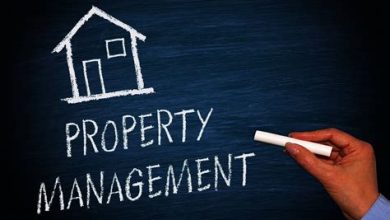Exploring the World of Commercial Real Estate Property Management
Welcome Readers to the Exciting Field of Commercial Real Estate Property Management
Commercial real estate property management is a dynamic and challenging industry that requires a unique blend of skills and expertise to succeed. In this article, we will delve into the world of commercial real estate property management, exploring its strengths, weaknesses, and everything in between. Whether you are a seasoned professional looking to expand your knowledge or a newcomer curious about this field, we hope to provide valuable insights and information to help you navigate the complex world of property management.
The Importance of Commercial Real Estate Property Management
Commercial real estate property management plays a crucial role in the success of any commercial property investment. From overseeing day-to-day operations to managing tenant relationships and ensuring compliance with regulations, property managers are responsible for ensuring that the property is well-maintained and profitable.
One of the key strengths of commercial real estate property management is its ability to generate a steady stream of income for property owners. By effectively managing rental agreements, lease renewals, and property maintenance, property managers can maximize the return on investment for property owners.
However, commercial real estate property management also has its fair share of challenges. One of the main weaknesses is the high level of competition in the industry, which can make it difficult for property managers to stand out and attract clients. Additionally, the constantly changing regulatory environment and economic conditions can pose significant challenges for property managers.
The Role of a Commercial Real Estate Property Manager
Commercial real estate property managers are responsible for overseeing all aspects of a commercial property, from leasing and tenant relations to maintenance and financial management. They play a critical role in ensuring that the property operates smoothly and remains profitable for the owner.
Leasing and Tenant Relations:
One of the primary responsibilities of a property manager is to oversee the leasing of commercial space and maintain positive relationships with tenants. This involves marketing the property, screening potential tenants, negotiating lease agreements, and addressing any tenant concerns or issues.
Maintenance and Property Upkeep:
Property managers are also responsible for ensuring that the property is well-maintained and in compliance with regulations. This includes overseeing routine maintenance, repairs, and renovations, as well as managing relationships with contractors and vendors.
Financial Management:
Another key aspect of a property manager’s role is financial management, including budgeting, rent collection, and financial reporting. Property managers must ensure that the property operates within budget constraints and that all financial obligations are met in a timely manner.
Compliance and Regulations:
Property managers must stay up-to-date on all relevant laws and regulations governing commercial real estate properties, including zoning laws, building codes, and lease agreements. Failure to comply with these regulations can result in legal issues and financial penalties.
Property Marketing and Tenant Acquisition:
To attract and retain tenants, property managers must develop effective marketing strategies to showcase the property’s amenities and attract potential tenants. This includes creating promotional materials, conducting property tours, and networking with local businesses and organizations.
Risk Management:
Property managers must also be skilled in risk management, including identifying potential risks to the property and implementing strategies to mitigate them. This may involve obtaining insurance coverage, implementing security measures, and addressing safety concerns.
Investment Analysis and Property Valuation:
Property managers may be involved in conducting investment analysis and property valuation to assess the financial performance of the property and identify opportunities for growth and improvement. This requires a strong understanding of financial principles and real estate market trends.
FAQs About Commercial Real Estate Property Management
What is the role of a commercial real estate property manager?
A commercial real estate property manager is responsible for overseeing all aspects of a commercial property, including leasing, tenant relations, maintenance, financial management, and compliance with regulations.
How do property managers attract and retain tenants?
Property managers use a variety of marketing strategies, such as creating promotional materials, conducting property tours, and networking with local businesses, to attract and retain tenants.
What are the key skills required to be a successful property manager?
Successful property managers possess a range of skills, including communication, negotiation, financial management, risk management, and knowledge of real estate regulations.
What are the common challenges faced by property managers?
Common challenges faced by property managers include high competition in the industry, changing economic conditions, regulatory compliance, and tenant disputes.
How do property managers handle maintenance and repairs?
Property managers oversee routine maintenance, repairs, and renovations by coordinating with contractors, vendors, and maintenance staff to ensure that the property remains in good condition.
What are the responsibilities of property managers in financial management?
Property managers are responsible for budgeting, rent collection, financial reporting, and ensuring that the property operates within budget constraints and financial obligations are met.
How important is risk management in commercial real estate property management?
Risk management is crucial in commercial real estate property management to identify and mitigate potential risks to the property, such as insurance coverage, security measures, and safety concerns.
Conclusion: Take Your First Step into the World of Commercial Real Estate Property Management
As we come to the end of this exploration into the world of commercial real estate property management, we hope you have gained valuable insights into the key strengths, weaknesses, and responsibilities of property managers. Whether you are a property owner looking to hire a property manager or a professional considering a career in property management, we encourage you to take the first step and learn more about this exciting and rewarding industry.
Remember, successful property management requires a unique blend of skills, expertise, and dedication to ensuring the success and profitability of commercial properties. By staying informed, remaining proactive, and continually improving your knowledge and skills, you can take your property management career to new heights.
We hope this article has provided you with a comprehensive overview of commercial real estate property management and inspired you to take action towards achieving your property management goals. Thank you for joining us on this journey, and we wish you all the best in your future endeavors in the world of property management.
Closing Words: Embrace the Challenges and Rewards of Property Management
In conclusion, commercial real estate property management is a dynamic and multifaceted industry that offers both challenges and rewards to those who choose to embark on this career path. By honing your skills, staying informed about industry trends, and remaining dedicated to the success of your properties, you can achieve success and make a positive impact in the world of property management.
Remember, property management is not just about managing buildings – it’s about building relationships, creating value, and making a difference in the lives of tenants and property owners. So, embrace the challenges, seize the opportunities, and embark on a rewarding journey in the world of commercial real estate property management.
| Commercial Real Estate Property Management Information | Details |
|---|---|
| Role of Property Manager | Managing all aspects of commercial property |
| Key Skills | Communication, negotiation, financial management |
| Challenges | Competition, economic conditions, regulatory compliance |
| Responsibilities | Leasing, tenant relations, maintenance, financial management |





